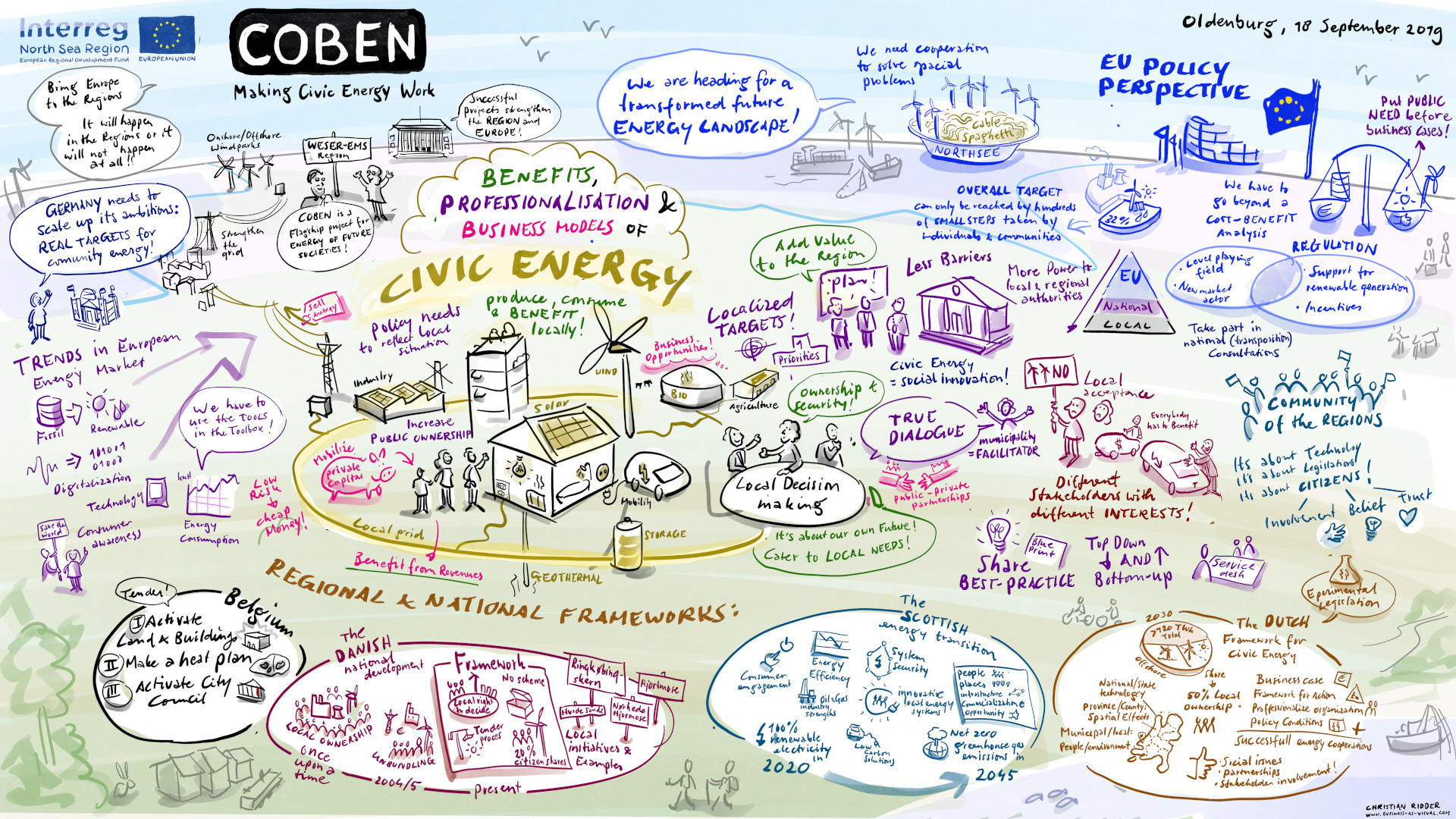Civic energy can take on many different shapes and forms - it is an inherently diverse concept that involves a range of different actors and processes. This informer guides you through the different phases of civic energy and aims to help
you get your civic energy project off the ground.
The point of departure is the initiation phase. This does not need include precise planning but can be characterized as a vision statement that proposes an alternative energy model for a specific community. This phase entails the
proposition
of the targeted benefits for the involved communities.
Due to the lack of clear policy or legal enablers in many national legislation - with some exceptions - the task of policy assimilation is also included in the initiation phase. This however needs to be addressed at regional or local level
with the aim to prepare potential engagement in and/or support of civic energy initiatives. This can range, e.g. from facilitator functions to a shareholder role of the municipality or a municipally-owned utility.
Some aspects to be considered during the initiation phase:
- Pre-analytic vision and motivation
- Targeted energy (supply) chain scope (energy sources, generation, distribution, consumption)
- Geographical dimensions
- Preliminary steering and facilitator functions
- Policy alignment and recruitment of political support
- Stakeholder engagement strategy
- Mission statement
Civic energy in a nutshell:
The Civic Energy Expert Forum highlighting everything you need to know about civic energy in the EU: During the 1st European Civic Energy Conference in Oldenburg, Germany in 2019, we asked our experts a series of questions to explore the
benefits and challenges of civic energy, as well as the role of the regions and what to expect from national civic energy policy.
- What are the main benefits of civic energy for the European communities - apart from energy supply?
- What problems have to be solved, so that civic energy comes true?
- Should the regions be involved in transposing EU civic energy legislation?
- What do you expect from your national legislation on citizen energy communities and renewable energy communities?
Other useful information:
- The Energy Communities Repository: https://energy-communities-repository.ec.europa.eu/index_en
- Rural Energy Community Advisory Hub: https://rural-energy-community-hub.ec.europa.eu/index_en
- Covenant of Mayors: https://www.covenantofmayors.eu/
- Clean energy for all Europeans package: https://energy.ec.europa.eu/topics/energy-strategy/clean-energy-all-europeans-package_en
- Directive (EU) 2018/2001 of the European Parliament and of the Council of 11 December 2018 on the Promotion of the Use of Energy from Renewable Sources. 2018. Available online: https://eur-lex.europa.eu/legal-content/EN/TXT/PDF/?uri=CELEX:32018L2001
- Directive (EU) 2019/944 of the European Parliament and of the Council of 5 June 2019 on Common Rules for the Internal Market for Electricity and Amending Directive: https://eur-lex.europa.eu/legal-content/EN/TXT/PDF/?uri=CELEX:32019L0944
Papers:
